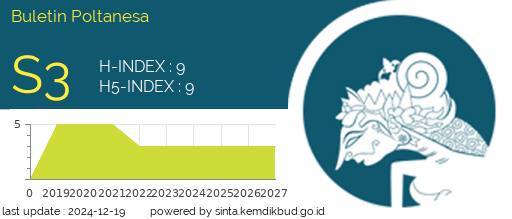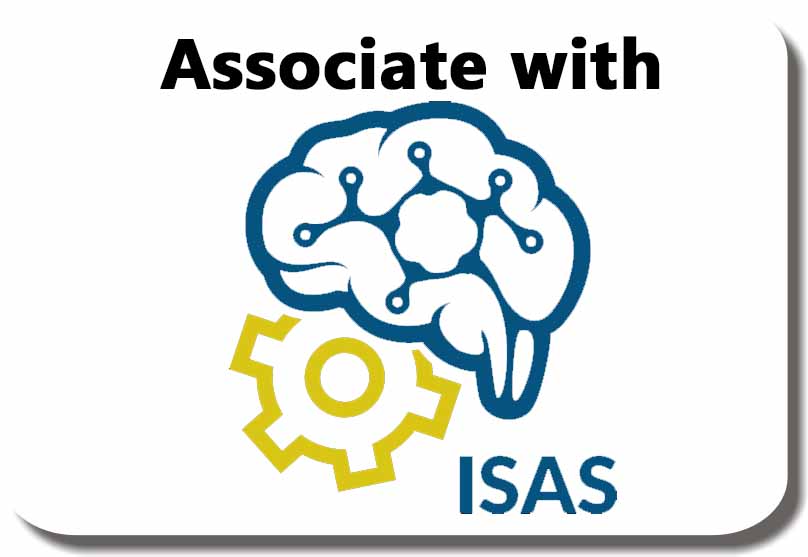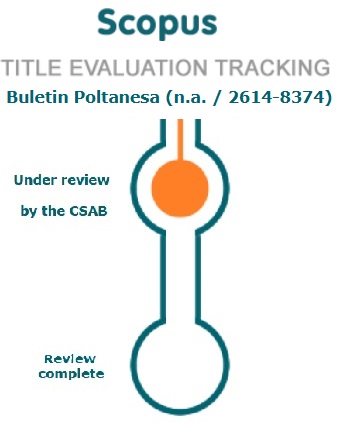Bilingual Skills in Learning for Islamic Education Students in the International Special Class Program (KKI) at Sultan Aji Muhammad Idris State Islamic University Samarinda
DOI:
https://doi.org/10.51967/tanesa.v25i1.3011Keywords:
Bilingual Skills, Learning, Islamic Education, English Education, Arabic Education, LanguageAbstract
This research departs from the importance of foreign language skills as one of the efforts to improve the competencies that must be possessed by every teacher or prospective Islamic Religious Education teacher. Therefore, in improving these competencies, a program is needed that is designed to form language skills for Islamic Education students who will become Islamic Education Teachers in the future. To support this program, the International Special Class at Sultan Aji Muhammad Idris State Islamic University Samarinda has developed a curriculum to support the advancement of students' foreign language skills in both English and Arabic. International special class management is needed in harmonizing the international special class curriculum (KKI) with concepts and activities related to language both English and Arabic in daily life in the classroom. The KKI program is expected to be able to compete with international universities as well with the provision of foreign language during their special class program. The Arabic language proficiency formation program for PAI students in the International Special Class Program (KKI) uses two programs TOAFL and Muhadharah. The English language proficiency formation program for PAI students in the International Special Class Program (KKI) has two language proficiency formation programs TOEFL and Public Speaking. This program is certainly supported by lecturers who speak English and Arabic to support this learning. It is hoped that alumni of the international special class (KKI) at Sultan Aji Muhammad Idris State Islamic University Samarinda can improve human resources and services to the community.
References
Abbas, S. (2016). Pembelajaran Bahasa Indonesia yang Efektif di Sekolah Dasar,. Departemen Pendidikan Nasional.
Astomo, P. (2021). Legal Politics of Responsive National Education System in the Globalization Era and the Covid-19 Pandemic. Yuridika, 36(2), 401. https://doi.org/10.20473/ydk.v36i2.25897
Astuti, R. (2017). Pendidikan Anak Usia Dini Berwawasan Bilingual dan Tauhid: Studi Kasus di PAUD Ababil School House Kota Pangkal Pinang. UIN Sunan Kalijaga.
Basyar, S. (2018). Pendidikan Islam di Era Globalisasi: Antara Konsepsi dan Aplikasi. Al-Idarah:Jurnal Kependidikan Islam, 8, 2. https://doi.org/http://dx.doi.org/10.24042/alidarah.v8i1.3075
Gunawan, I. (2014). Metode Penelitian Kualitatif: Teori dan Praktik. PT. Bumi Aksara,.
Herdiansyah, H. (2015). Metodologi penelitian kualitatif untuk ilmu psikologi . Salemba Humanika.
I. A. Yani, I. A. R., & A. A. Kusumadinata. (2016). Effect of Foreign Language Competency and Organization in Supporting Career in Public Relations (Pengaruh Kompetensi Berbahasa Asing dan Pengorganisasian dalam Menunjang Karir di Bidang Public Relations). JURNAL KOMUNIKATIO , 4, 10. https://doi.org/https://doi.org/10.30997/jk.v4i1.1208
Iskandarwassid, & Sunendar, D. (2018). Strategi Pembelajaran Bahasa. SPs UPI dan Remaja Rosdakarya.
Mulyasa, E. ,. (2014). Kurikulum Berbasis Kompetensi. Remaja Rosdakarya.
Mulyono. (2014). Manajemen Administrasi & Organisasi Pendidikan. Ar-Ruzz Media.
Nugraheni, A. S. (2017). Implementasi Program Bilingual School untuk Meningkatkan Kecerdasan Linguistik di SD INTIS School Yogyakarta. TERAMPIL: Jurnal Pendidikan Dan Pembelajaran Dasar , 4. https://doi.org/http://dx.doi.org/10.24042/terampil.v4i1.1806
Soenardi, D. (2011). Tes Bahasa: Pegangan Bagi Pengajar Bahasa. PT. Indeks.
Sugiyono. (2018). Metode Penelitian Pendidikan; Pendekatan Kuantitatif, Kualitatif, dan R&D. Alfabeta.
Sutarsih, & Nurdin. (2014). Manajemen Pendidikan: Supervisi Pendidikan (7th ed.). Alfabeta.
Tarigan, H. G. (2021). Berbicara sebagai Suatu Keterampilan Berbahasa. CV. Angkasa.
Rahayu, N. (2016). Pembelajaran Bahasa Arab MI dalam Rahayu Nurti, “Penggunaan Metode Scramble untuk Meningkatkan keterampilan menulis kalimat Bahasa Arab Materi Fil Madrasah pada Siswa Kelas V Mi Da’watul Khoiriyah Gresik [UIN Sunan Ampel]. http://digilib.uinsa.ac.id/id/eprint/7478
Wahjosumidjo. (2013). Kepemimpinan Kepala Sekolah: Tinjauan Teoritik dan Permasalahannya. Rajagrafindo Persada.
Zahiroh, F. F. (2021). The effectiveness of online learning on Social Studies subject at MTs Bahrul Ulum Genukwatu Jombang. UIN Malang.
Downloads
Published
How to Cite
Issue
Section
License
Copyright (c) 2024 Buletin Poltanesa

This work is licensed under a Creative Commons Attribution-ShareAlike 4.0 International License.
The copyright of this article is transferred to Buletin Poltanesa and Politeknik Pertanian Negeri Samarinda, when the article is accepted for publication. the authors transfer all and all rights into and to paper including but not limited to all copyrights in the Buletin Poltanesa. The author represents and warrants that the original is the original and that he/she is the author of this paper unless the material is clearly identified as the original source, with notification of the permission of the copyright owner if necessary.
A Copyright permission is obtained for material published elsewhere and who require permission for this reproduction. Furthermore, I / We hereby transfer the unlimited publication rights of the above paper to Poltanesa. Copyright transfer includes exclusive rights to reproduce and distribute articles, including reprints, translations, photographic reproductions, microforms, electronic forms (offline, online), or other similar reproductions.
The author's mark is appropriate for and accepts responsibility for releasing this material on behalf of any and all coauthor. This Agreement shall be signed by at least one author who has obtained the consent of the co-author (s) if applicable. After the submission of this agreement is signed by the author concerned, the amendment of the author or in the order of the author listed shall not be accepted.











